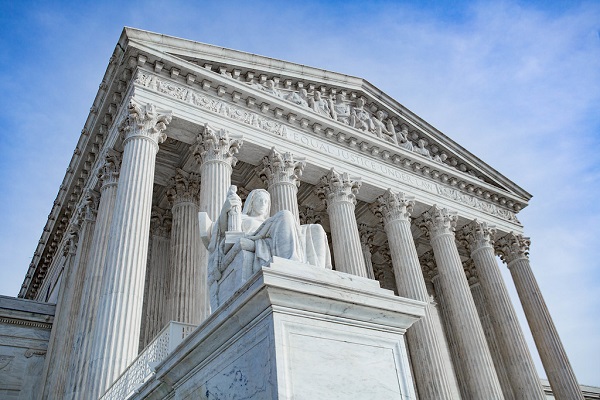The U.S. Supreme Court has issued a “stay” until October 16 on a lower court order that had blocked the Biden administration’s rule concerning ghost guns. This allows President Joe Biden’s proposed firearm restrictions to proceed. Ghost guns are homemade firearms without serial numbers, making them untraceable, and the government believes regulation and serial numbering are essential.
However, a lower court had previously deemed the rule illegal. In response to the Supreme Court’s order, gun manufacturers opposing the regulation have until October 11 to present their arguments. The Supreme Court is expected to issue a decision on or before October 16.
U.S. District Judge Reed O’Connor of the Northern District of Texas had granted an injunction against the rule, finding that it conflicted with the law. O’Connor determined that the ban overstepped its authority under the law by encompassing “partially manufactured firearm components, related firearm products, and other tools and materials.”
While the 5th Circuit heard an appeal of the injunction, the government’s rule on ghost guns remained in effect, as agreed upon by the Supreme Court.
There were four dissenting opinions from conservative justices, including Justices Thomas, Alito, Gorsuch, and Kavanaugh. Three liberal justices (Sotomayor, Kagan, and Brown Jackson) were joined by two conservatives (Chief Justice John Roberts and Justice Amy Coney Barrett) in upholding the rule.
In August, the Biden administration urgently requested the Supreme Court to prevent a decision that could nullify all federal “ghost gun” regulations.
Last year, Biden announced a crackdown on “ghost guns,” leading to legal challenges against the Bureau of Alcohol, Tobacco, Firearms, and Explosives’ new regulation. A federal judge in Texas, appointed by Republicans, had previously ruled the regulation unconstitutional and ordered its nationwide revocation. The 5th U.S. Circuit Court of Appeals subsequently narrowed the decision to invalidate only certain parts of the rule, prompting the Justice Department to seek a suspension of the entire decision.
The Supreme Court is currently deliberating two provisions: one that explicitly includes certain parts kits in the federal definition of a “firearm,” and another that defines “frame or receiver” to cover disassembled parts easily converted into a working firearm.
The rule extends to new covered parts of federal regulations related to serial numbers, record-keeping, background checks, and other aspects. However, the federal judge in Texas found that the ATF’s expanded definitions exceeded the scope of federal gun laws.
Gun rights advocates have been given a week to respond to the administration’s request, as conservative Justice Samuel Alito, who handles emergency requests from the 5th Circuit, ordered a pause. It’s important to note that this order does not represent the Supreme Court’s final decision.
“The district court’s universal vacatur is irreparably harming the public and the government by reopening the floodgates to the tide of untraceable ghost guns flowing into our Nation’s communities,” the Justice Department wrote in its request.
“Once those guns are sold, the damage is done: Some will already be in the hands of criminals and other prohibited persons — and when they are inevitably used in crimes, they are untraceable.”
The Biden administration argued that the count of “ghost guns” presented to the ATF for tracing surged from roughly 1,600 in 2017 to over 19,000 in 2021. They also criticized the lower court’s ruling, claiming that its broad prohibition was inappropriate.
The rule is facing opposition from two gun owners, two advocacy organizations, and five firearms manufacturers or distributors. Numerous cases concerning ghost guns are currently being litigated in the courts. As per Justice Alito’s directive, the plaintiffs were expected to provide a response to the administration’s request by Wednesday.
“We’re elated that the Fifth Circuit has seen through ATF’s unpersuasive arguments and has determined that ATF failed to show it is likely to win on appeal,” said Cody J. Wisniewski, an attorney at Firearms Policy Coalition, one of the groups challenging the rule.
“ATF lost at the district court and has now lost its first bite at the Fifth Circuit; we look forward to continuing to win against ATF’s unlawful and unconstitutional gun control regime,” he added.
“Every speaker of English would recognize that a tax on sales of ‘bookshelves’ applies to IKEA when it sells boxes of parts and the tools and instructions for assembling them into bookshelves,” the Justice Department wrote. “The court’s insistence on treating guns differently contradicts ordinary usage and makes a mockery of Congress’s careful regulatory scheme.”




